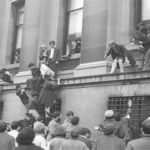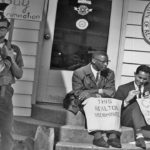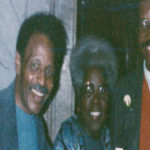
Still Stirring
How the real revolution of Columbia 1968 was not across generations but within a generation.

How the real revolution of Columbia 1968 was not across generations but within a generation.

Half a century after passage of the Fair Housing Act of 1968, residential racial segregation and spatial isolation endure. Change has been slow, and it has been uneven.

It was not the box office hits, the Oscar-winners, or even the overtly druggy cinematic curios of 1968 that had the clearest sense of where the Age of Aquarius might be heading. Rather, it was the smaller American and British horror features—most of them overlooked today—that seemed to discern the looming end of the Revolution.

Revisionists have been making their case that the Vietnam War was winnable ever since Lyndon Johnson abandoned hope of a decisive American victory in the spring of 1968. Far more striking, however, is that even in the early 21sth century the idea that the United States stole defeat from the jaws of victory in Vietnam thrives as never before.

The through line for a collision between national anthem, sports, and protest that has persisted from 1968’s black-gloved fists in the air to #TakeAKnee is not as straight as you might believe.

The lessons and legacies of Vietnam in 1968, the year the war turned, are many. What endures above all, however, is a sense of tragedy, the bewilderment of a people who cannot understand to this day what they did wrong.

Because of its messiness, 1968 serves as a productive staging ground for imagining what feminist reproductive politics could mean today.

What happened in the tumultuous 50 years before 1968, why 1968 shaped the 50 years that would follow, and how that pivotal year may yet shape our future.

When Great Britain announced in January 1968 its military withdrawal from colonial holdings bracketing the Indian Ocean, it announced an era of reckoning in which colonial legacy and Islamically-oriented political parties vied for power across the Middle East. Today, Sudan and Yemen remain salient examples of that era’s lasting effects.

There was a time when I had dreams, infrequently but strikingly, that my mother had died. These occurred some years ago when I did not talk to her very regularly or see her often.